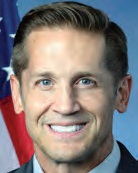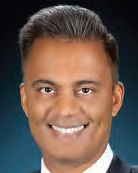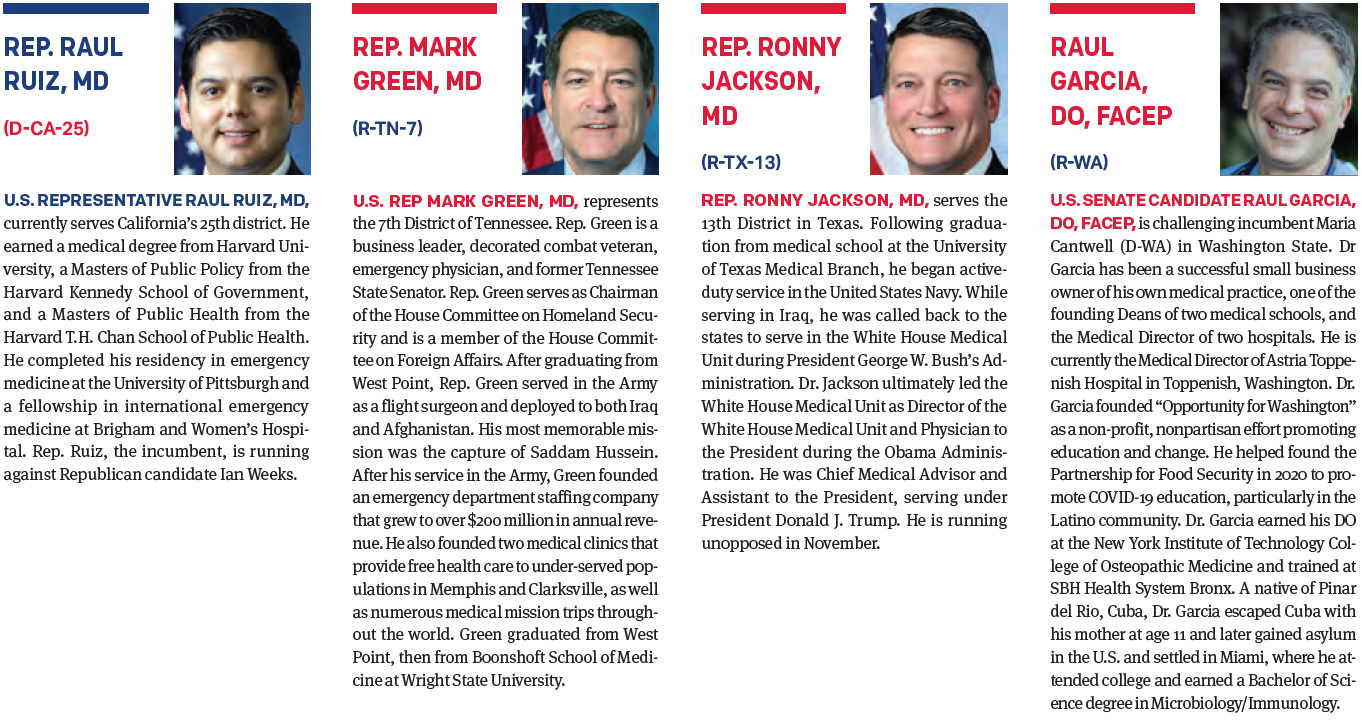
Every two years, Americans go to the polls to choose our representatives in Congress and at the state level. Few of the candidates vying to represent us have truly walked in our shoes as emergency physicians. However, seven emergency physicians—some incumbents and a few newcomers—are hoping to represent their communities in Washington, D.C. ACEP Now reached out to Drs. Raul Garcia, Mark Greene, Ronny Jackson, Rich McCormick, Timothy C. Peck, Raul Ruiz, and Amish Shah, to ask them about their views on issues important to emergency physicians. We were able to speak with three candidates this year. Our interviews, edited for clarity and brevity, are printed below. Full interviews can be found online at ACEPNow.com.
Explore This Issue
ACEP Now: Vol 43 – No 10 – October 2024REP. RICH MCCORMICK, MD
(R-GA-7)

ACEP MEMBER AND U.S. REP.
RICH MCCORMICK, MD, is a veteran and emergency physician who serves Georgia’s 6th Congressional District in the United States House of Representatives.
Between deployments, Dr.
McCormick earned his Master
of Business Administration from National University and medical degree from Morehouse School of Medicine in Atlanta. He completed residency in emergency medicine through Emory while training at Grady Hospital in Atlanta. Most recently, Dr. McCormick served as an emergency physician at
Northside Hospital. Incumbent Rich McCormick, Bob Christian, and Charles King are running in the general election for newly drawn U.S. House Georgia District 7.
ACEP Now: Boarding has persisted as an issue for the past couple of years. What obstacles do you find in Congress that exist right now when it comes to addressing hospital boarding, and what would be your recommendations on how we could address them from a society organizational perspective?
REP. MCCORMICK: First of all, the government is very bad at solving problems. Medicine is unique and very complex. We’ve seen it in the way we pay for medicine, it’s a $5 trillion industry in America. That’s the same as the third-largest GDP in the world. Between the PBMs, the pharmaceuticals, the hospital systems, the doctors, the mid-levels, the nurses, the techs … it is a complex system of payments. The boarding issue is not just one thing. Why would it be worse after COVID? Are there more people sick?You could say that the population is growing at a set rate, but more so in some areas than others. We have underserved communities in the rural areas. In the Atlanta region, we had AMC, one of the largest hospitals in the region closed. What does that do? Overburden the other hospital systems. Each hospital system has its own unique challenges. One thing I will say though is the free market is really good at sorting these out, but if you have a certificate of need (CON) for example, you have no way to compete, you have no way to expand, you have no way to reinvest in serving the public.
ACEP Now: Dr. Aisha Terry, has focused on the pipeline of leadership for the College this year. How would you encourage other physicians to follow in your footsteps, if they‘re feeling like they want to get away from the bedside and tackle issues, whether that‘s in Congress, or a state legislature, or local level?
REP. MCCORMICK: Don’t lose your way. Realize that it’s a massive pay cut. Even if you’re not in Congress, you can be involved in this process. The reason I think orthopedists have done so well because they’ve been involved, they’ve been politically engaged, they’ve used their assets to preserve their assets. When you’re disengaged, guess what? You’re in the trough, you’re getting fed on. And if you look at ER physicians for example, we have taken essentially a 25 percent pay cut in the last couple of years.
ACEP Now: You went to Morehouse School of Medicine, which is one of four historically Black medical schools, which includes Howard, Meharry, and King Drew at UCLA. Morehouse School of Medicine talks about being successful at shifting the curve by accepting matriculants with MCAT scores that are on par for minority applicants, but then outperform on other tests like USMLE, relative to peer institutions. There‘s this bill called the EDUCATE Act, which you‘re a co-sponsor of, and which ACEP stands in opposition to. Do you feel like the EDUCATE Act might risk the future success that has been experienced at places like Morehouse School of Medicine?
REP. MCCORMICK: I’m very proud of my Morehouse heritage. I was actually student body president, elected the same year that Obama was elected President of the United States in a school that’s 60 percent female, 80 percent Black, and about 95 percent liberal, a white male conservative was elected student body president. That’s based on relationships, it’s not based on politics or identity.
I will say this, the reason I’m against DEI, and the reason I co-sponsored this bill is because [DEI] has gone way overboard. It’s going to create more racism.
Now, if you’re a historically Black school, that’s a totally different thing, and I actually have an amendment to this that excludes traditionally Black schools. I think that it’s very important to realize there’s a tradition, and there’s a reason for having Howard, Morehouse, and Meharry. I think there’s a reason for those schools. I’m very, very proud of those schools and what they do. I agree, I watched firsthand, people that probably wouldn’t have gotten into most schools and did just fine on the USMLE. I think they had individual attention, because they were given a belief system, they had a work ethic, and they just continued to plod and improve, and I loved it.
AMISH SHAH, MD, FACEP
(D-AZ-1)

ACEP MEMBER AMISH SHAH, MD, FACEP (D-AZ-1) is running against incumbent David Schweikert (R-AZ-1) for a House seat in Maricopa County. Dr. Shah trained at Lincoln Medical and Mental Health in New York.
ACEP Now: What are you hoping to accomplish at the federal level that you couldn’t at the state level?
DR. SHAH: The big thing at the federal level is that Medicare and Medicaid are controlled up there at the federal level, right? And a lot of health care financing is done at the federal level that isn’t done at the state level. That’s really it. We did have some control over the state Medicaid system at the state legislature level, which was good. But you’re trying to get everybody covered and lower the costs. I mean that’s really it, and it’s a much bigger problem. CMS controls a lot of the rules for how things are financed, and therefore that’s where you have to go if you want to make changes.
ACEP Now: The FTC is looking into consolidation: What are your thoughts on consolidation among insurers and providers of health care?
DR. SHAH: We have always regulated monopolies in the U.S., and FTC has always been a group that has protected people from monopoly for the benefit of the consumer and for society at large. And we’ve seen in other industries like big tech, they’ve been very hesitant to go after monopolies. Now, I think there is a place for them to carefully examine the market power in any one given industry in a given location and ask whether that meets the definition of monopoly power. I certainly hope they would do that. I was an economics major, you know, and I’d be concerned if somebody were exerting monopoly power at the expense of the consumer.
ACEP Now: Should ER docs unionize to get better working conditions?
DR. SHAH: That’s a complicated question. I attended the ACEP panel on this last year, and they talked about the pros and the cons. It may not be for everybody. Some groups and practices have explored the option, understand what they’re getting into and have concluded that that they’re going to work together to get better outcomes under a unionized model. It has clearly made sense for those groups. It’s not a decision to be taken lightly.
TIMOTHY C. PECK, MD
(D-IN-9)

ACEP MEMBER TIMOTHY C. PECK, MD (D-IN-9) is running against incumbent Erin Houchin (R-IN-9) and Libertarian Russell Brooksbank (L-IN-9) in southeastern Indiana, a district that includes Bloomington and Indiana’s Louisville suburbs. Dr. Peck went to medical school at NYU Grossman and trained at the Harvard Affiliated Emergency Medicine Residency Program at Beth Israel Deaconess. He founded multiple novel medical practices and technology companies, including Call9, Curve Health, and CareScout. He also has worked as an advocate in D.C, testifying before Congress to advocate for telemedicine and value based care.
ACEP Now: What obstacles exist in Congress to address hospital boarding? What would be your recommendations on how to address them?
DR. PECK: All my recommendations on health and health care here point back to the problems we have about experience. We don’t incentivize experience in our systems and our laws – both the provider’s experience as well as the patient’s experience, so when it comes to hospital boarding, it falls right in line with that. There’s no hard line for how many hours you should be measured on in terms of boarding or in terms of how long you’re in the emergency department. I think it’s a very easy fix on the Congressional side, to have more physicians in Congress and more people who understand what it is to be on the ground there to just logically put in experience measures–time of boarding being one of them.
ACEP Now: What are your thoughts on consolidation among insurers and providers of health care?
DR. PECK: Right here in Indiana and District 9, I have several critical access hospitals that are part of the consolidation effort of other systems. One of the pieces of reform that needs to happen is how we reward and incentivize not-for-profit systems – to continue to give them the tax breaks that they need and deserve to be a not-for-profit. But we also need much more scrutiny over their reserves. Where are the profits going and how are they using them? Those reserves are used much more for pavilions and surgery centers in wealthy suburbs and urban areas and less so in rural areas and critical access hospitals. When you have billions of dollars in reserves, and I see that critical access hospitals in my district literally don’t even have security, that’s a problem. I was dumbfounded to see how much more equitable distribution should be required if you’re going to be in a system that’s consolidating under tax breaks. This question also addresses private equity (PE). There’s an incongruency between private equity and the mission of medicine. One is a cost reduction function which is very useful in that industry. Another is to deliver the best patient care you possibly can, and those things don’t work very well together. As an emergency physician who has founded a telemedicine practice, treating patients in nursing homes, and worked to reduce unnecessary hospitalizations, I’ve seen what PE has done to the nursing home industry. The function of PE, which is cost cutting, creates horrible patient experiences for the families, patients and providers. I don’t think, in its current form, that private equity should be part of the health care system.
ACEP Now: How would you encourage other physicians to follow in your footsteps away from the bedside to tackle issues in Congress or a state legislature?
DR. PECK: My path may be a little bit different. I became an entrepreneur first, then gained some valuable experience while living in a nursing home for three months. One thing about emergency doctors is that we’re problem solvers, right? That’s our job. We’re just really good at figuring things out. Those skills we learn in emergency medicine translate to entrepreneurship for sure, making something from nothing. But they’re also useful in policy and politics, especially the ability to be calm when things are hectic, or somebody you disagree with is yelling at you. As emergency physicians, we’re still trying to find solutions. Having the confidence to know that those skills are so transferable will take a little bit of the fear out of making the jump and putting their hat into the ring. I think we need to highlight that at ACEP a little bit more, letting people know that the skills and knowledge emergency physicians have are extremely valuable and something the country needs. When you can change the very way Medicare works or work to preserve physician payment vs. hospital payment with inflation, you have the capability to help literally every physician in the country.
ACEP Now: What are you hoping to accomplish in Congress?
DR. PECK: Making sure physician payments keep up with inflation. There’s a chart I’ve seen that shows physician payment on one line, and it’s just flat while hospital payments are skyrocketing up the chart. That can only be fixed through Medicare reform. At the federal level, we also can work on legislation that considers incentives and value, and by value, I mean not only quality but patient experience. There’s a lack of understanding by politicians about what patient experience really is – what an end user experience is. Right now, there’s no incentive to get people out of the emergency department by hospital administrators. Congress doesn’t write laws that requires CMS to consider patient experience in the way we should. We don’t have a 4-hour rule anymore, and it’s why there’s no incentive to get people out of the emergency department by administrators.
OTHER EMERGENCY PHYSICIAN CANDIDATES
2024 Congressional Candidates—QUICK QUESTIONS
The 2024 Congressional candidates agreed to participate in some rapid-fire questions spanning their favorite part about being an emergency physician to who their picks are for this year’s World Series.
What is the best thing about being an emergency physician?
REP. MCCORMICK: You get to see people on the worst day of their lives and have real influence. If you want to pick a ministry where you’re going to make a difference to somebody, see them on their worst day, people will actually listen to you, and you may have a positive effect on their life.
DR. PECK: I go back to the skills that it gives. It’s amazing, like being able to be calm and teach a resident while someone’s actively coding in front of you. You don’t get that from other places, maybe the military.
DR. SHAH: No matter who you are, where you come from, what your problem is, we will be there for you.
If emergency medicine didn’t exist, what specialty would you have chosen?
REP. MCCORMICK: I really love pediatrics, I love working with kids.
DR. PECK: I went to Haiti for a year during Medical School, went to school at NYU and took a year off living in Haiti and did a year of what could be considered tropical third-world medicine. So, if not emergency medicine, I think the idea of developing world medicine.
DR. SHAH: Wow. What a question. I probably would have done orthopedic surgery.
What do you think about artificial intelligence (AI)? Is it going to make medicine better or worse?
REP. MCCORMICK: It has the potential to do both. I hope it’ll make it better, I hope it’ll make billing better.
DR. PECK: Worse before it gets better, I think, is the answer.
DR. SHAH: I don’t know, but I would say, with any new technology, it opens up opportunity and a possibility for abuse as well.
Who do you have for the Major League Baseball World Series this year?
REP. MCCORMICK: Baseball’s a hard one with me, if the Braves aren’t doing well, I’m kind of out. So I’ll stick to rugby.
DR. PECK: That’s a tough one for me because I’m from the Midwest and lived on the East Coast. And I have some baseball connections. I’ll stick with NL East vs. AL Central.
DR. SHAH: I don’t know. I’m a Chicago Bears fan and an NFL guy. I’m not into baseball that much. That’s my honest to goodness answer.






No Responses to “Meet the Emergency Physicians Running for Congress”